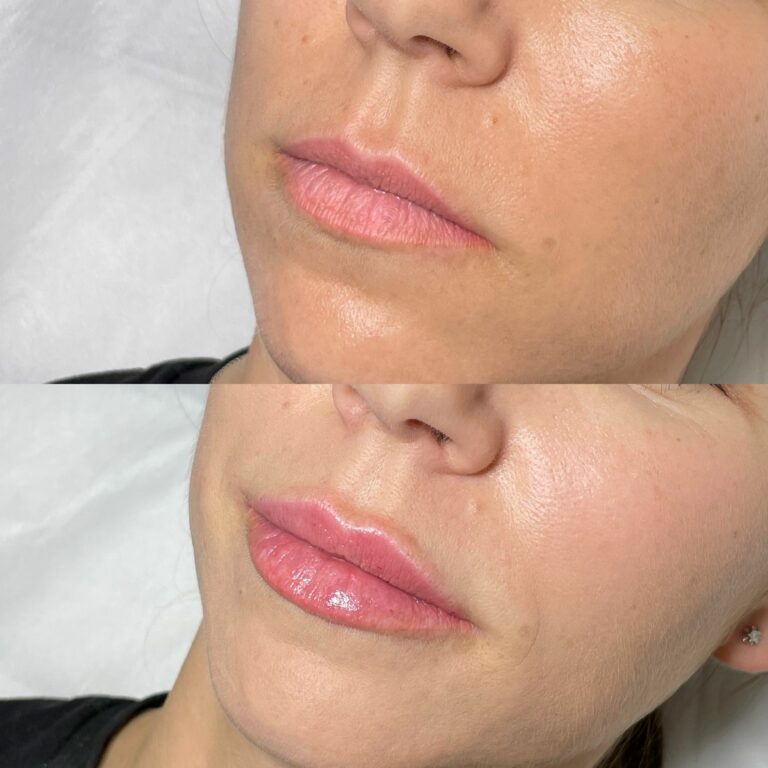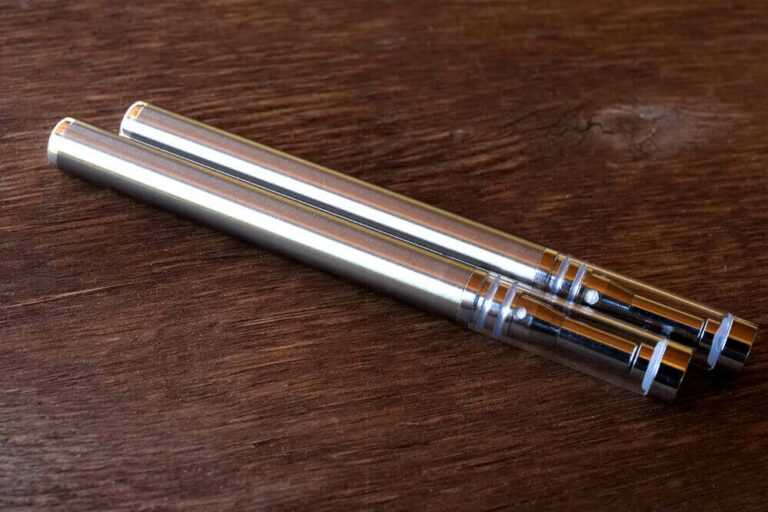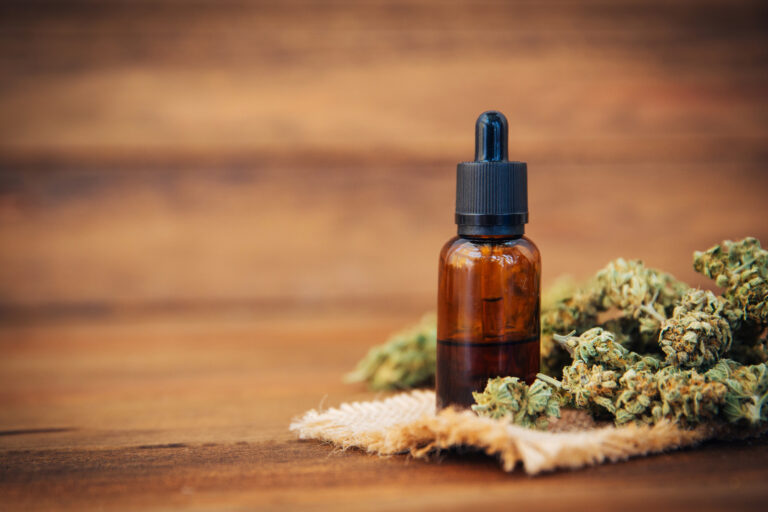As the cannabis industry continues to evolve, the popularity of cannabinoids such as delta-8 THC has surged. Delta-8 THC, a minor cannabinoid found in the cannabis plant, offers a milder psychoactive experience compared to its close counterpart, delta-9 THC. However, as the demand for delta-8 THC products increases, states like Michigan have begun to address the regulation of this cannabinoid. This comprehensive guide aims to explore Michigan’s approach to regulating delta-8 THC, covering the legal landscape, safety considerations, product requirements, and potential implications for consumers and businesses.
Understanding Delta-8 THC
Delta-8 THC, also known as delta-8 tetrahydrocannabinol, is a naturally occurring cannabinoid in the cannabis plant. It shares a similar chemical structure to delta-9 THC, the primary psychoactive compound in cannabis, but has a double bond on the eighth carbon chain instead of the ninth. This slight difference in chemical structure leads to delta-8 THC’s milder psychoactive effects, making it an appealing option for individuals seeking a more controlled cannabis experience.
Michigan’s Legal Status on Cannabis and THC
In Michigan, the legal landscape for cannabis has evolved significantly in recent years. In 2008, Michigan voters approved the use of medical marijuana through the Michigan Medical Marihuana Act (MMMA). Then, in 2018, Proposal 1, or the Michigan Regulation and Taxation of Marihuana Act (MRTMA), legalized recreational marijuana for adults aged 21 and older. Under these laws, licensed facilities can cultivate, process, and sell cannabis products, including delta-9 THC products.
The Emergence of Delta-8 THC Products
With the rising demand for alternative cannabinoids, delta-8 THC products have gained popularity in Michigan and other states. These products, ranging from vape cartridges and edibles to tinctures and topicals, are marketed as offering a more controllable and less intense psychoactive experience than traditional delta-9 THC products. As consumers turn to these products, the need for clear regulations and safety standards becomes crucial.
Regulatory Challenges and Concerns
The regulation of delta-8 THC presents several challenges for policymakers and authorities. Due to its mild psychoactivity, delta-8 THC may attract individuals seeking to circumvent restrictions on delta-9 THC. Furthermore, the lack of consistent quality control standards can lead to variability in delta-8 THC products’ safety and efficacy. State officials must balance the desire to provide access to alternative cannabinoids with the need to protect public health and safety.
Michigan’s Response to Regulating Delta-8 THC
Michigan has taken steps to address the regulation of delta-8 THC products. The state’s Marijuana Regulatory Agency (MRA) oversees the licensing, monitoring, and enforcement of marijuana-related activities, including the production and sale of delta-8 THC products. Under MRA guidelines, licensed facilities must comply with specific rules and requirements to produce and sell delta-8 THC products legally.
Product Testing and Labeling Requirements
One of the critical aspects of regulating delta-8 THC is ensuring product safety and transparency. The MRA mandates that all marijuana products, including delta-8 THC products, undergo rigorous testing by accredited laboratories. These tests assess the cannabinoid content, potency, contaminants, and microbial content to verify product safety and consistency. Additionally, product labels must accurately display the cannabinoid content and comply with all state labeling requirements.
Licensing and Compliance
Michigan requires businesses involved in the production and sale of delta-8 THC products to obtain the necessary licenses and comply with regulations set by the MRA. License applicants must undergo background checks, meet strict financial requirements, and demonstrate their ability to operate responsibly and safely. Compliance with state regulations is essential for businesses to operate legally and avoid potential penalties.
Consumer Safety and Education
As the market for delta-8 THC products expands, consumer safety and education become paramount. Michigan authorities aim to protect consumers by ensuring that only properly licensed facilities produce and distribute these products. Additionally, public education initiatives can inform consumers about the potential risks and benefits of delta-8 THC and the importance of purchasing products from reputable sources.
The Evolution of Cannabis Regulation in Michigan
Michigan has experienced significant changes in its approach to cannabis regulation over the years. Beginning with the Michigan Medical Marihuana Act in 2008, which legalized medical marijuana for qualifying patients, the state has since expanded its cannabis policies with the passage of the Michigan Regulation and Taxation of Marihuana Act in 2018. This act legalized the recreational use of marijuana for adults aged 21 and older, allowing for the cultivation, sale, and possession of certain quantities of cannabis. As the cannabis market in Michigan continues to grow, regulators have been tasked with developing comprehensive rules to oversee the ever-expanding range of cannabis products, including those containing delta-8 THC.
The Rise of Delta-8 THC Products in Michigan
Delta-8 THC products have gained popularity in Michigan and other states due to their unique properties and potential benefits. These products, which include vape cartridges, edibles, tinctures, and topicals, are often marketed as offering a smoother and less intense psychoactive experience compared to traditional delta-9 THC products. This appeal has led to an increase in consumer demand for delta-8 THC products and prompted the need for robust regulations to ensure product safety and transparency.
Regulatory Challenges and Considerations
Regulating delta-8 THC presents several challenges for policymakers in Michigan. The similarities in chemical structure and psychoactivity between delta-8 THC and delta-9 THC can make distinguishing between the two compounds difficult without proper testing. Additionally, the lack of uniform quality control standards in the industry raises concerns about product consistency and safety. Regulators must carefully balance the need to accommodate consumer preferences for alternative cannabinoids with the responsibility of safeguarding public health and consumer well-being.
Michigan’s Response to Regulating Delta-8 THC
Michigan’s Marijuana Regulatory Agency (MRA) plays a central role in overseeing the regulation of cannabis, including the production and sale of delta-8 THC products. The MRA establishes licensing requirements and guidelines that businesses must follow to legally produce, test, and distribute delta-8 THC products. The agency also conducts inspections and monitors licensed facilities to ensure compliance with state regulations and quality standards.
Product Testing and Labeling Requirements
A crucial aspect of Michigan’s regulations on delta-8 THC products involves product testing and accurate labeling. All cannabis products, including those containing delta-8 THC, must undergo comprehensive testing by accredited laboratories to assess cannabinoid content, potency, purity, and safety. This testing ensures that consumers have access to products that meet the required quality and safety standards. Additionally, proper product labeling is essential to provide consumers with clear information about the content and potential effects of delta-8 THC products.
Licensing and Compliance
Businesses seeking to produce and distribute delta-8 THC products in Michigan must obtain the necessary licenses from the MRA. The licensing process involves background checks, financial assessments, and demonstrating compliance with all state regulations. License holders must adhere to strict operational requirements to ensure consumer safety and avoid potential legal issues.
Consumer Safety and Education
As delta-8 THC products become more prevalent in the market, consumer safety and education are paramount. Michigan authorities prioritize public awareness initiatives to inform consumers about the potential risks and benefits of delta-8 THC. Educating consumers about the importance of purchasing products from licensed facilities and understanding the effects of different cannabinoids can empower them to make informed choices and protect their well-being.
Conclusion
Michigan’s approach to regulating delta-8 THC reflects the state’s commitment to balancing consumer demand with public health and safety. By establishing clear guidelines, testing requirements, and licensing processes, Michigan aims to provide a framework for the responsible production and sale of delta-8 THC products. Consumers benefit from these regulations by having access to products that meet quality and safety standards. As the cannabis industry continues to evolve, Michigan’s regulatory model on delta-8 THC serves as an example for other states seeking to address the challenges and opportunities presented by alternative cannabinoids. As regulations continue to develop, consumers and businesses can look forward to a safer and more transparent marketplace for delta-8 THC products in Michigan.
Kristina Shafarenko is a relationship and health and wellness psychologist and a part-time freelance lifestyle writer covering health and fitness, sex, sexual wellness, and relationships. When she’s not writing, you can find her planning her next getaway, taste-testing every coffee spot in sight, and lounging at home with her cat, Buddy.
- The Four Factors To Consider When Storing Your CBD Gummies - October 19, 2023
- The Best CBD Gummies For Your Nighttime Routine - October 19, 2023
- What Makes CBD Edibles So Awesome - October 19, 2023














